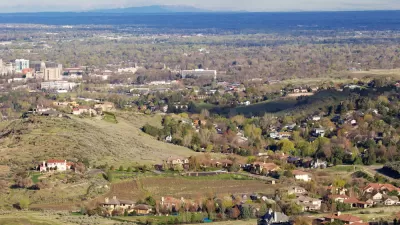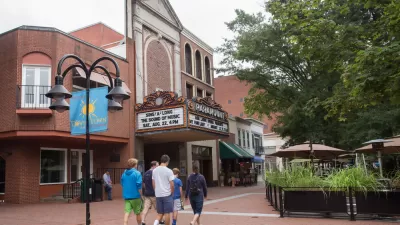The past, present, and future of zoning in Tennessee.

Daniel T. Mollenkamp writes a detailed article on the history of zoning, the ongoing evolution of zoning practice to undo some of the discriminatory effects of exclusionary zoning, and the possibility of reform in the various cities of Tennessee.
According to Mollenkamp, Tennessee is in need of a conversation about race:
Across Tennessee, studies have revealed racial disparities in both homeownership and in the value of the homes owned by racial minorities, partly owing to the history of housing policies that intentionally favored white home-ownership over black.
For examples of recent zoning reforms designed to undo some of those effects, Mollenkamp cites the state of California, the city of Minneapolis, and the city of Charlotte:
The city of Charlotte decided to allow dense housing, such as duplexes and other multiplexes, in previously single-family zoned areas, during an overhaul of the city’s zoning earlier this year. The decision prompted questions about whether it could serve as a model for the South to grapple with historical injustices since Charlotte is more culturally similar to Tennessee than California. The city is in the process of putting the rules into practice through its Unified Development Ordinance, which is still open for public comment.
Mollenkamp also discusses the challenges of bringing of bringing zoning reform to Tennessee, including a wide gap between the state's rural areas and its urban areas (e.g., Memphis and Nashville) and the high rates of poverty in the state's cities.
The article cites Yonah Freemark, senior research associate in Metropolitan Housing and Communities at the urban Institute, as a subject matter expert, and also cites a 2021 study into the effects of Minneapolis' zoning reforms by Daniel Kuhlmann, an assistant professor in the Department of Community and Regional Planning at Iowa State University; a 2020 report into the racial disparities in the Tennessee housing market by University of Tennessee, Chattanooga researcher Darrell R. Walsh; and additional Tennessee housing market data from the National Association of Builders.
FULL STORY: Experts probe zoning rules affect on inequality, housing availability in Tennessee

Maui's Vacation Rental Debate Turns Ugly
Verbal attacks, misinformation campaigns and fistfights plague a high-stakes debate to convert thousands of vacation rentals into long-term housing.

Planetizen Federal Action Tracker
A weekly monitor of how Trump’s orders and actions are impacting planners and planning in America.

San Francisco Suspends Traffic Calming Amidst Record Deaths
Citing “a challenging fiscal landscape,” the city will cease the program on the heels of 42 traffic deaths, including 24 pedestrians.

Defunct Pittsburgh Power Plant to Become Residential Tower
A decommissioned steam heat plant will be redeveloped into almost 100 affordable housing units.

Trump Prompts Restructuring of Transportation Research Board in “Unprecedented Overreach”
The TRB has eliminated more than half of its committees including those focused on climate, equity, and cities.

Amtrak Rolls Out New Orleans to Alabama “Mardi Gras” Train
The new service will operate morning and evening departures between Mobile and New Orleans.
Urban Design for Planners 1: Software Tools
This six-course series explores essential urban design concepts using open source software and equips planners with the tools they need to participate fully in the urban design process.
Planning for Universal Design
Learn the tools for implementing Universal Design in planning regulations.
Heyer Gruel & Associates PA
JM Goldson LLC
Custer County Colorado
City of Camden Redevelopment Agency
City of Astoria
Transportation Research & Education Center (TREC) at Portland State University
Jefferson Parish Government
Camden Redevelopment Agency
City of Claremont





























